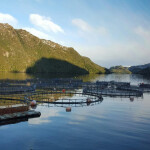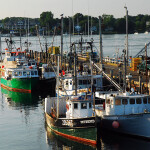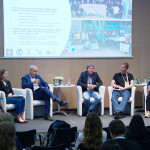Some 200 international seafood firms have sought to join a distributor in central China that is pledging to solve China’s notorious cold-chain problems and build sales in thriving regional cities. The firms have signed letters of intent with Wuhan Lanesync Supply Chain Management Co, according to Shao Xuanwu, head of international cooperation at the firm.
Based far from the coast in the central city of Wuhan, an industrial hub on the Yangtze river, Lanesync has tapped into foodservice demand for imported seafood with its ‘LBD E-Commerce platform’ which sells seafood for 1,000 seafood distributor/processing clients that include Thai conglomerate CP and Vietnam-based Minh Phu Seafood Corp., which has been trying to build sales in China. Another client is Chinese shrimp exporting giant Zhanjiang Guolian, which has been keen to increase domestic sales to reduce dependency on volatile export markets.
The emergence of a firm like Lanesync is significant given only 23 percent of seafood is distributed in China’s sprawling territory via a cold-chain — slightly more than the rate for meat products (15 percent) and more than the figure for fruit and vegetables (5 percent).
Shao explains that Lanesync is “the first specialized company which focuses on supply-chain service of frozen and refrigerated foodstuff for chain restaurants.” Lanesync services 3,000 catering and restaurant clients through 60 franchisee stores and 200 fully owned membership stores trading under the ‘Xianzhilong Membership Store’ name. Seven Lanesync ‘Purchase & Logistics Centers’ have meanwhile been strategically located in cities including Shanghai, Tianjin, Guangzhou and Wuhan.
Lanesync is racking up CNY 10 billion (USD 1.6 billion; EUR 1.3 billion) a year in revenues, according to Shao, who says the firm spent three years perfecting its “innovative marketing E-Commerce platform (LBD).” Lanesync offers its foodservice clients product selection and purchasing services as well as leftover stock sales services, cold chain logistics services and payment processing.
As seafood imports soar here, a host of Chinese firms have been seeking to cash in on the demand for seafood cold chain logistics — among them the troubled giant Zhangzidao (also known as Zoneco) which claims on its website to be a cold chain supply leader for third-party clients. However Shao says “Zhangzidao’s main business is selling products while we focus on the supply chain service.” Lanesync, says Shao, has committed to promoting clients’ products with an “annual foodstuff festival” with the first one set for March next year.
Lanesync’s distribution network could also see it becoming a significant brand in its own right: A recently signed cooperation agreement for lobster with the fisheries authorities in Prince Edward Island (PEI), Canada, will see Lanesync create a China-focused brand for PEI lobsters, which it will distribute here.
To burnish its sustainability credentials, Lanesync has hooked up with the Global Aquaculture of Alliance (GAA) to advance environmentally and socially responsible aquaculture through certification standards.
“The cooperation with GAA means a better understanding of the certification standards and can make a strong foundation for choosing suppliers,” explains Shao.
There’s a lot of play for: China’s national per capita consumption of 45.35 kilograms of aquatic products, high by world averages, is growing by almost 10 percent a year, according to the China Aquatic Products Promotion Association (CAPPMA), which has been helping companies with road shows in booming interior cities like Wuhan to promote further growth in consumption away from the wealthy coastal provinces.
GAA has been trying to build its presence in China by hooking up with firms like Lanesync to capitalize on concern among consumers here over food safety. “GAA’s [Best Aquaculture Practices] standards address food safety problems throughout the aquaculture production chain. BAP certified products add assurance of good food safety practices in the process of producing those products. Consumers can buy them with confidence and preference,” explained Jane Bi, spokesperson for GAA’s China office.






